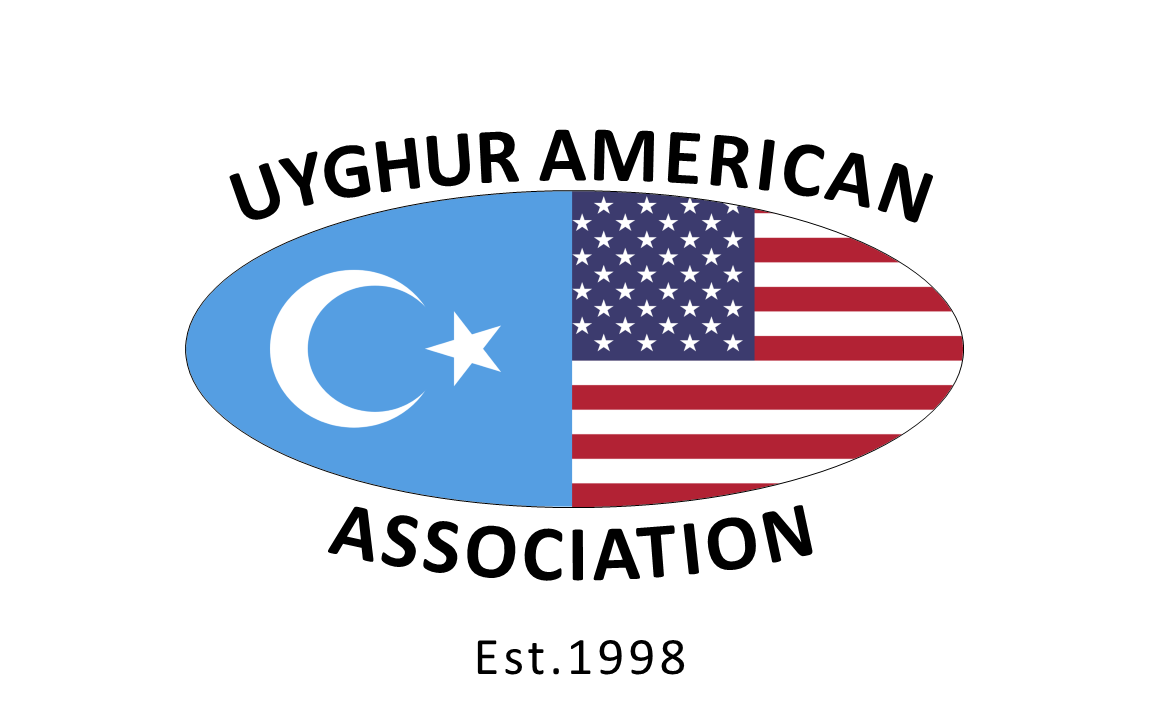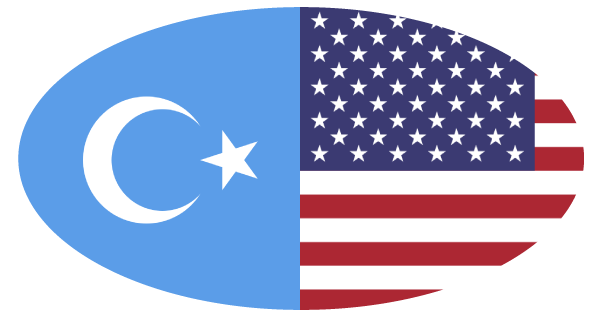Mulan, the Uyghurs, and the #Fakewokeness of American Companies
The recent release of the Disney live action film Mulan, a rendition of the Chinese poem “The Ballad of Mulan,” has faced scrutiny from U.S. lawmakers and the general public for filming some scenes in East Turkistan (also known as Xinjiang).
Over the last several years, the government of the Peoples Republic of China (PRC) and the Chinese Communist Party (CCP) have subjected the Uyghurs, a mostly Muslim ethnic minority group indiginous to East Turkistan, to a campaign of mass incarceration, mass surveillance, forced labor, population control, and cultural genocide. The issue of Uyghur forced labor has been further exacerbated by the Covid-19 pandemic, which has led to labor shortages in China as Han Chinese workers are quarantined or refuse to work.
It is my belief that any and all foreign commercial activity in East Turkistan perpetuates the persecution of Uyghurs and legitimizes the state of affairs in Xinjiang. Disney, however, went a step further in directly cooperating with eight Xinjiang government and party agencies, whom they also thanked in the credits of their film. One of these agencies is the Turpan Municipal Bureau of Public Security, an entity that is directly involved in the management of the Uyghur internment camps; and which is also on a U.S. government blacklist that forbids American companies from selling or supplying them products. At least two of the agencies, the Publicity Departments of both the CCP Xinjiang Committee and the CCP Turpan Committee, are in effect propaganda agencies that have been developing and distributing material for foreign audiences, in order to legitimize the existence of the internment camps and obfuscate the true nature of the situation in East Turkistan.
The controversy seems not to have impacted Disney’s bottom line, as the movie has done well in the United States. Mulan’s poor performance in China has nothing to do with the Uyghur controversy and everything to do with the movie being terrible. Regardless of the apparent lack of financial consequences, this is a bad look for Disney. The press coverage of the controversy has been extensive, and a quick glance at Disney’s social media posts about Mulan shows that almost all of the top ten or fifteen most liked comments are those criticizing Disney’s disregard for Uyghurs. The clamor around the controversy had become so loud that the CCP issued guidance to news agencies in China directing them not to cover the release of the film.
Assuming that Disney has no moral compass and does not care about Uyghur lives, surely they do care about their own image. So how could Disney have been so irresponsible?
One logical reason is that Mulan was filmed in 2018, after the internment camps were established, but before they were regularly in the headlines. However, this is no excuse — Disney should do their research when choosing filming locations — however, it might explain why it never occurred to Disney that this move would attract controversy.
Disney’s blatant hypocrisy becomes apparent when one examines their behavior concerning human rights and social justice issues in the United States. In May of 2019, Disney CEO Bob Iger told journalists from Reuters that he would consider pulling Disney productions out of the state of Georgia if their controversial fetal heartbeat abortion bill became law. This bill would have prevented physicians in Georgia from performing abortions if they could detect a heartbeat in the fetus, which is typically possible at six weeks. A federal district court ruled the proposals in the bill to be unconstitutional, so Iger never had to make a decision about pulling Disney out of Georgia. Opinions on this bill aside, where is Iger’s outrage over the forced abortions and forced sterilizations of Uyghur women in Xinjiang? With these and other atrocities widely documented, why was there no discussion of Disney pulling out of Xinjiang, or out of China altogether?
Why the double standard? The cynical view (which I hold) is that Disney cares about nothing other than their own financial success, and that their #woke approach to social issues in the American context represents a calculation concerning their own financial interests.
The amount of bending over backwards that Disney does for China (removing Winnie the Pooh from its Shanghai Disneyland park — working closely with the Chinese government to make sure movies, including Mulan, do not contradict so-called Chinese values) is something that is morally questionable notwithstanding the Uyghur issue. And censorship (which is what takes place when you have the PRC standing over your shoulder while you write a screenplay) also leads to terrible art — again, Mulan was a terrible movie.
Disney could be sure that the Chinese audience would not be bothered by the Uyghur issue to the extent that they would boycott the film. They made the same assumption about the American audience, but they appear to have miscalculated. Perhaps now Disney will consider the human rights records of their overseas filming locations, but they likely will not do so out of genuine concern — only for their bottom line.
Disney is not the only perpetrator of #fakewokeness for commercial gain. Consider Nike’s outspoken advocacy for the Black Lives Matter (BLM) movement and their early support of Colin Kaepernick, who was shunned by the National Football League (NFL) for kneeling during the national anthem to bring attention to police brutality against Black Americans. I have no doubt that there are many people within the Nike organization who have genuine concern for the treatment of Black Americans at the hands of American police. However, there are a lot of people in a lot of organizations that have genuine concern for any number of causes, but companies only act on these concerns if it is in their financial interest to do so. Nike made a calculation that highlighting certain social issues would gain them more customers than it would lose them. Last week Nike released an all-black Colin Kaepernick football jersey commemorating four years since he first took a knee — it sold out in under a minute.
This is all well and good, but what about the Uyghurs? A study by the Australian Strategic Policy Institute (ASPI) — “Uyghurs for Sale” — found that, as recently as January 2020, Nike sneakers have been made by Uyghurs who had been forcefully relocated to work in factories in Qingdao in north-eastern China. Nike has released several statements since this news became public in which they express general concern for the issue of Uyghur forced labor, but neither confirm nor deny the specific findings of the ASPI report. If Nike is so concerned about social issues, and has made such an effort to highlight the BLM movement and Kaepernick even though Nike themselves are not culpable in the oppression of Black Americans, then Nike should be pulling out all of the stops to help the Uyghurs, a group whose oppression they are in part culpable for. There should be advertising campaigns — blue and white East Turkistan soccer jerseys — sponsorship of Uyghur athletes. This will never happen though, because it would be extremely financially detrimental for Nike to lose the Chinese market. The very least Nike can do, and should do, is to make absolutely sure that they are not benefitting from the forced labor of Uyghurs, and to encourage their peer companies to do the same.
The National Basketball Association (NBA) is perhaps the most hypocritical #fakewoke organization of all. For several years the NBA had maintained a basketball academy and training facility in Urumqi, the capital of Xinjiang. Nike closed the facility in July of this year after scrutiny from US lawmakers. In other words, it was closed when the NBA decided it might hurt them financially to keep the facility open — and not a moment sooner.
In an attempt to address systemic racism and police brutality, the National Basketball Players Association (NBPA) and the NBA agreed on twenty-nine social justice slogans that players can wear on the back of their jerseys in place of their names. No slogans supporting Uyghurs have been approved. In fact, during the last NBA season fans wearing pro-Hong Kong democracy slogans on their clothing were escorted out of a game in Philadelphia, and fans at a game in Washington had “Google Uyghur” signs taken away from them by NBA security.
This #fakewoke behavior extends to individuals as well. Lebron James is very active in the BLM movement and is an outspoken advocate against police brutality towards black Americans. This is fantastic — he can leverage his prominent position as the most talented basketball player in the world to exert powerful influence. It is regrettable then that he actively tried to shut down anti-CCP statements from other individuals within the NBA. In October of last year Houston Rockets general manager Daryl Morey tweeted support for Hong Kong protesters, which led the Chinese government to ban Rockets games from broadcast in China. James said that Morey was “either misinformed or not really educated on the situation,” – later clarifying that he was concerned about the financial fallout of Morey’s statement.
There are better role models in sports — athletes who stand up for the rights of marginalized groups even when it is financially detrimental to themselves and their team. Take for example the Turkish-German soccer player Mesut Ozil, whose club Arsenal fell all over themselves releasing a clarifying tweet when he voiced his concern for Uyghurs. Ozil continued his support for the Uyghurs, even as his jerseys were removed from stores and online retailers in China and as Arsenal games were pulled by Chinese broadcasters. Like Colin Kaepernick, Ozil took a major financial hit and put his career at risk by speaking out.
Polling has shown that for the first time ever the majority of Americans support the BLM movement — and companies are jumping on the bandwagon. Take a look at the list of American companies that have benefited from the forced labor of Uyghurs in the ASPI study — almost all of them have voiced support for BLM over the last year. Their support for social issues is a lagging indicator, a simple mathematical equation — the company will only support a cause after, and not a moment before, the majority of their customers support it. After years of oppression of black people in America and countless tragic deaths, it took another profound tragedy, the death of George Floyd, to change the conversation. Let’s hope that we can change the conversation about Uyghurs before the situation worsens, before some profound tragedy forces us to act.
The United States Congress must take action to forbid companies from continuing to benefit from the forced labor of Uyghurs, and from conducting any commercial activity in Xinjiang. Furthermore, Congress must take action guaranteeing the right of free speech for individuals who speak out in support of the Uyghurs. Allowing the promotion of some social justice slogans while disallowing others is certainly in contradiction with the spirit of the First Amendment right to freedom of expression, if not legally opposed to it. Furthermore, congressional action would take pressure off of individual companies and instead shift China’s wrath to the U.S. government. Companies would be able to claim adherence to the law when confronted by China over the speech of their employees, athletes, and fans.
It did not take government action for companies to change their tune about the BLM movement — it was the grassroots actions of individuals and NGOs that fomented change. The same blueprint could be followed with regards to the Uyghur genocide. So inform your family and friends, educate your students and colleagues, share on social media, change your consumption habits and encourage others to do so, and contact companies and your elected representatives to advocate for the Uyghurs.

